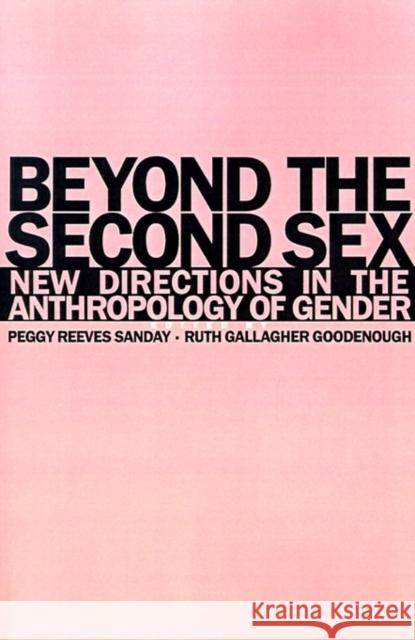Beyond the Second Sex: New Directions in the Anthropology of Gender » książka
Beyond the Second Sex: New Directions in the Anthropology of Gender
ISBN-13: 9780812213034 / Angielski / Miękka / 1990 / 320 str.
Beyond the Second Sex is an innovative work that challenges Simone de Beauvoir's notion that women are "the second" in every society. Anthropological inquiry into male-female relations has evolved around debates concerning sexual inequality. Based on original field research, the essays presented in this volume are not concerned with inequality per se. Rather, the authors pose ethnographic and analytical challenges in the assumptions and definitions that, in the past, have supported judgments about sexual equality and inequality. They move away from broad labels and blanket judgments in favor of addressing the conflict, contradictions, and ambiguities that are so often encountered in field research.These essays maintain that, in discussing the cultural construction and representation of gender, the "culture" that is abstracted from field data cannot be separated from a complex, ongoing, and everchanging local process. From this point of view, the editors conclude, the relationship of the sexes to each other is best discussed in terms of the conflicts, tensions, and paradoxes that are at the heart of daily life in many societies.Beyond the Second Sex will be of interest to students and scholars of anthropology and women's studies.
Beyond the Second Sex is an innovative work that challenges Simone de Beauvoir's notion that women are "the second" in every society. Anthropological inquiry into male-female relations has evolved around debates concerning sexual inequality. Based on original field research, the essays presented in this volume are not concerned with inequality per se. Rather, the authors pose ethnographic and analytical challenges in the assumptions and definitions that, in the past, have supported judgments about sexual equality and inequality. They move away from broad labels and blanket judgments in favor of addressing the conflict, contradictions, and ambiguities that are so often encountered in field research.
These essays maintain that, in discussing the cultural construction and representation of gender, the "culture" that is abstracted from field data cannot be separated from a complex, ongoing, and everchanging local process. From this point of view, the editors conclude, the relationship of the sexes to each other is best discussed in terms of the conflicts, tensions, and paradoxes that are at the heart of daily life in many societies.
Beyond the Second Sex will be of interest to students and scholars of anthropology and women's studies.











